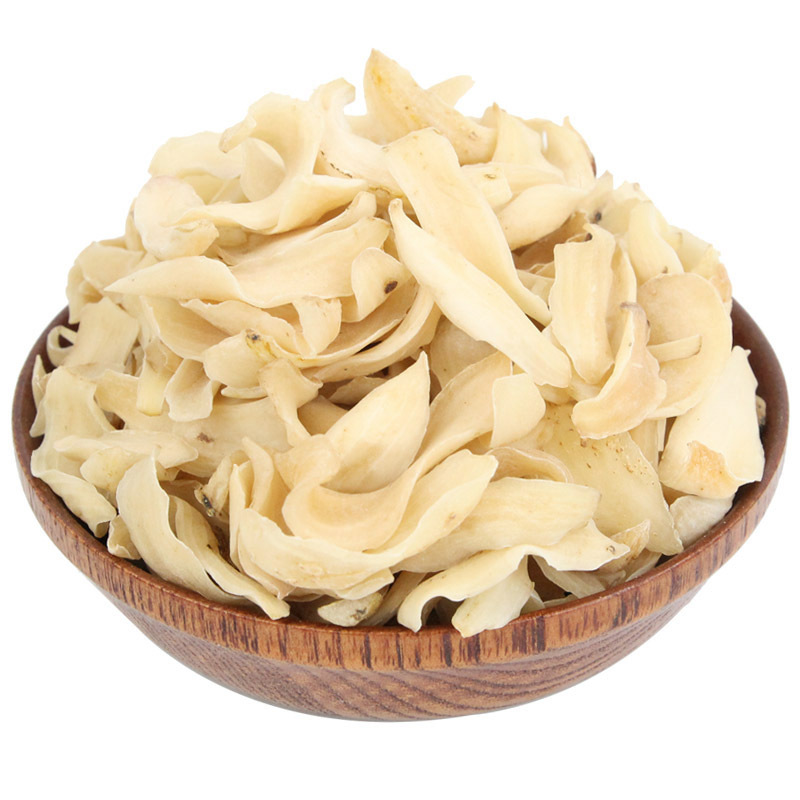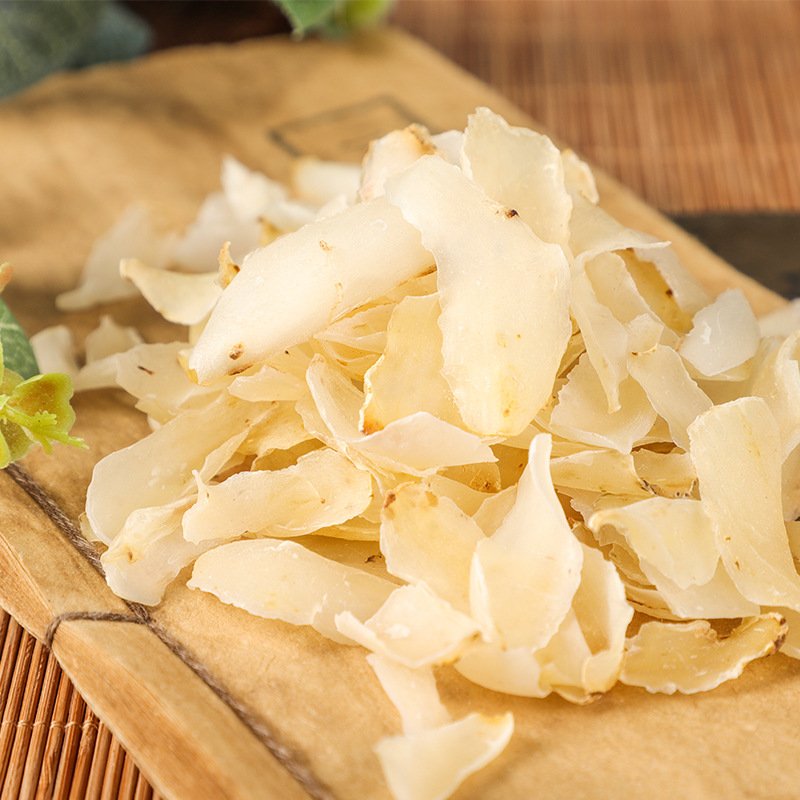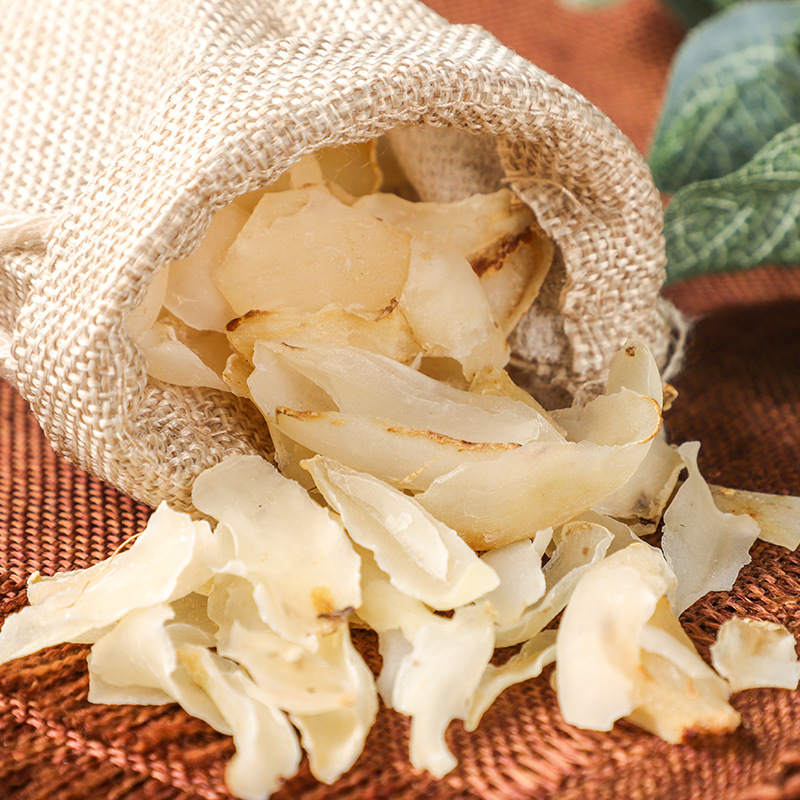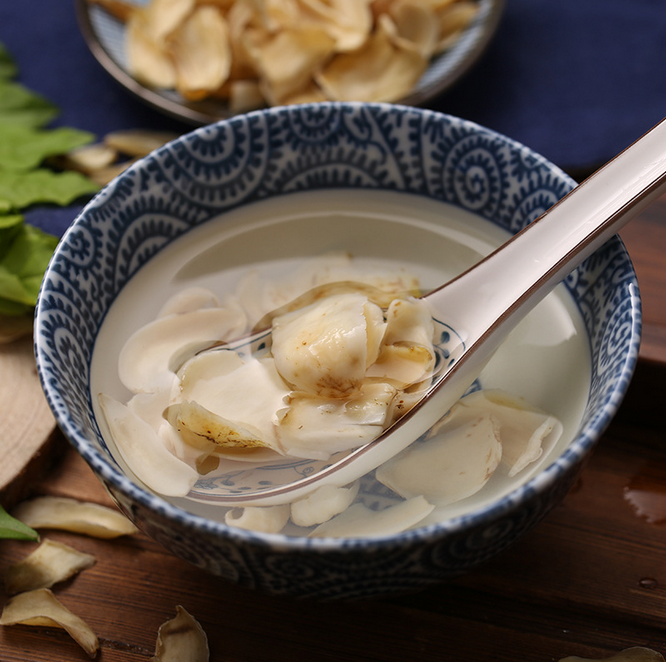
Lily root, known scientifically as Lilium spp.
is a highly regarded herb in traditional Chinese medicine (TCM) and has been used for centuries due to its numerous health benefits. The bulb of the lily plant is the part primarily utilized in herbal remedies and is classified as both a food and a medicine in TCM, reflecting its nutritive and therapeutic properties.

The lily bulb is rich in essential nutrients such as dietary fiber, vitamins, and minerals. It is particularly high in Vitamin B1, which plays a crucial role in energy metabolism and nerve function. In TCM, the lily bulb is believed to nourish the heart and calm the mind, making it an excellent treatment for symptoms of anxiety, restlessness, and insomnia.
In terms of taste and properties, lily bulbs are sweet and slightly cold. They enter the heart and lung meridians according to TCM theory. This herb is often prescribed to moisten the lungs and transform phlegm, helping to relieve coughs and wheezing associated with dryness in the lungs. It is also used to nourish the yin and clear heat, which can be beneficial for symptoms like thirst, dry mouth, and a red tongue with little coating.
Lily bulb's cooling nature makes it suitable for alleviating conditions related to heat in the body, such as hot flashes and irritability caused by menopause. Additionally, it is thought to promote skin health and is sometimes added to beauty products for its moisturizing effects.
It is important to note that while lily bulb is generally safe when used appropriately, individuals with specific health conditions should consult with a healthcare provider before using any herbal supplement. Furthermore, lily bulb may interact with certain medications, so caution is advised if you are on prescription drugs.

Incorporating lily bulb into one's diet or using it as a medicinal herb can enhance overall well-being and address specific health concerns under the guidance of a knowledgeable practitioner of traditional Chinese medicine.

sweet lily root
bitter lily root






